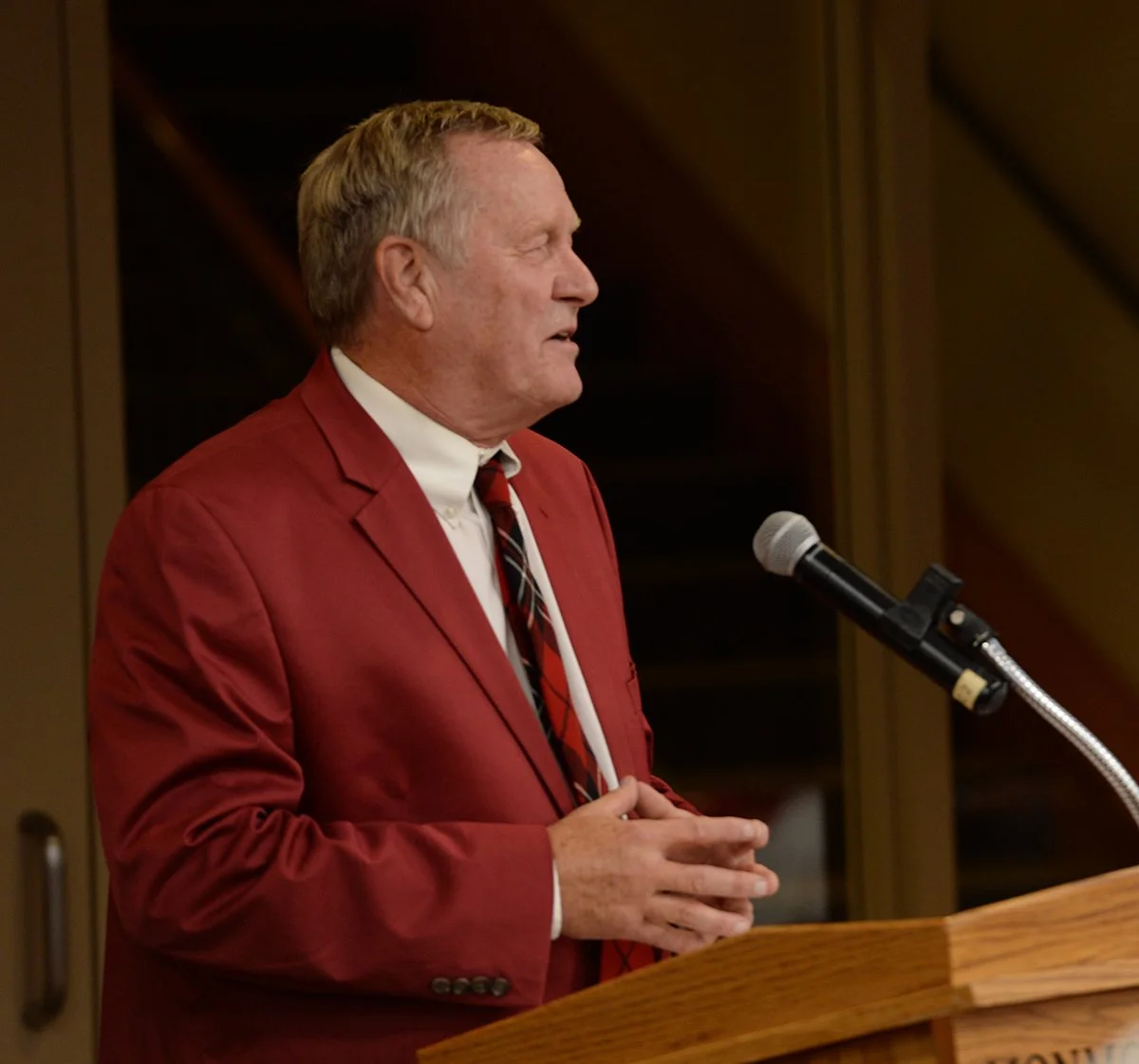Recipient of Monmouth's prestigious Hatch Award for Excellence in Teaching, Connell focuses on developing 'broadly educated' graduates
By: Monmouth College - Barry McNamara
When Monmouth College added a marketing major earlier this year, that caused one of its biggest advocates, business professor Mike Connell, to reflect on his three decades on campus.
"Many liberal arts colleges didn't have a business major when I first started teaching here," said Connell, who joined the faculty in 1992 and has chaired the department, which now has more than 165 students, for most of that time. "We did, but we didn't have marketing. It's a different atmosphere now. The world has changed. We have the internet. We have all this data. We're offering a new education for this brand new world."
It's that ability to adapt and improve - along with the wisdom to hold on to bedrock principles - that led to Connell receiving the college's prestigious Hatch Award for Excellence in Teaching.
Dean of the Faculty Mark Willhardt mentioned that adaptability while introducing Connell at the Alumni Impact Awards ceremony during Homecoming Weekend.
"Mike was hired as a professor of economics," he said. "But he was really hired to build our business program into a home for great, student-centered teaching. He did that, and then did it again many times over the years as faculty came and went."
There were other changes, as well, as Connell kept adapting and improving his craft.
"As I have grown as a teacher, my strategy in the classroom has changed," he said. "Now I teach fewer things, bigger things, to enable students to understand those concepts intuitively. Over time, the details change, but the principles do not. A broadly educated person understands a few powerful, basic truths and applies them widely."
During his Hatch Award acceptance speech, Connell shared his early experiences in higher education.
"I was a first-generation, clueless college student perfecting my party skills at Champaign-Urbana," he said. "After a false start, I learned to enjoy the role of Fighting Illini honor student."
Connell said he had another "false start" at his first faculty position, landing on the wrong end of the "publish or perish" spectrum. Lafayette College's loss was Monmouth's gain.
"I learned that my comparative advantages were in the classroom, not research," he said. "Meeting (former Monmouth president) Bruce Haywood was a 'road to Damascus' moment for me. During the job interview, I confessed my failure to publish. Bruce said words that changed my life: 'I'm not hiring you to publish papers that no one will read. I'm hiring you to be the best teacher that you can be.' I promised Bruce I would be that teacher, and to this day, I'm working to fulfill that promise."
Connell said his life changed again as he began working with department colleague Rodney Lemon.
"At Monmouth, I've learned to embrace the value of the liberal arts that I didn't learn at Champaign," he said. "I became a lifelong learner. Rodney Lemon introduced me to the ideas of Friedrich Hayek and Austrian economics and changed my life again. ... I believe that whatever success the business and economics program has had with our majors for 30 years stems directly from sharing new ideas with our students."
What hasn't changed during the past 30 years is Connell's appreciation for Monmouth students, a point that Willhardt made in his introduction, and one that's clear to anyone who's seen the 71-year-old professor waving the flag - quite literally, at football and basketball games - for his fellow Fighting Scots.
"He sees our students, he gets them and he has built his department time and again to serve their best interests," said Willhardt. "He has taught generations of students what love for one's college can do, and how it should act, and how it can be embodied every day in every situation. Whether in the classroom or not, Mike embodies what excellence in teaching undergraduates can be."
Said Connell: "I love the process of sharing my learning with others in the hope of imparting an understanding of society and inspiring a love of learning. I am not naive enough to believe that I can do this for every student, but I am foolish enough to hope that I do that for some, and perhaps, many students. If so, I have been successful. Teaching is not what I do, it is who I am."

